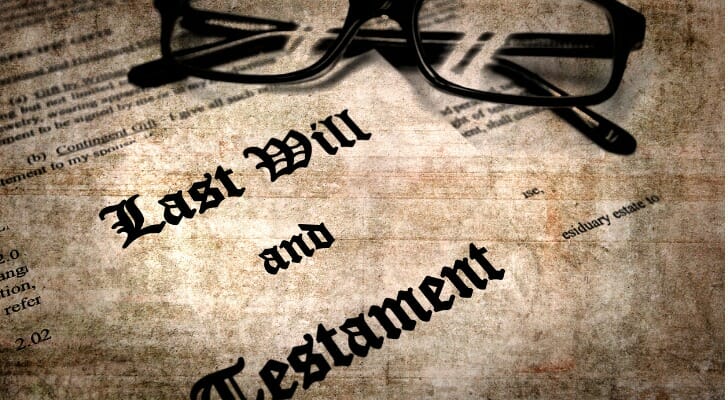
An estate plan is crucial in that it helps ensure that your loved ones are taken care of, and your assets are distributed according to your wishes after you pass. One of the key components to any estate plan is your will. While it may seem daunting, understanding the basics of will drafting and key terms such as “residue” can make the estate planning process more manageable. Please contact a skilled estate planning attorney now to make sure your estate plan is complete and consistent with your wishes.
What is a Will?
A will is a legal document that outlines how your assets and estate should be distributed upon your death. It allows you to specify who will:
- Inherit your property,
- Be the guardian for any minor children,
- Be responsible for carrying out your wishes and winding up your personal affairs (this person is known as the personal representative).
A well-drafted will can help avoid conflicts among heirs, minimize the time and expense of probate, and ensure that your legacy is preserved according to your intentions.
What are the Key Components of a Will?
There are five key components to a will. These include:
- The personal representative, or the person or institution you appoint to carry out the terms of your will.
- Beneficiaries, or individuals or organizations you designate to receive your assets.
- A guardian, or the person you appoint to care for any minor child.
- Specific bequests, or specific items or sums of money you leave to particular people or organizations.
- The residue, or the remainder of your estate after specific bequests, debts, taxes, and administrative expenses have been paid.
The Concept of Residue
The residue of an estate is what remains after all specific bequests, debts, taxes, and expenses have been settled. This can include real estate, personal property, and financial assets. The residue is often the largest portion of an estate and is distributed according to the residuary clause in your will.
A residual clause is often thought of as the catch-all provision in your will when it comes to beneficiaries because it ensures that any assets not specifically mentioned in your will are still accounted for and distributed according to your wishes. Your residue can be divided among multiple beneficiaries or given to a single entity or person, allowing for flexibility in how your estate is distributed.
What Steps to Consider When Drafting a Will?
You should consider the following steps when thinking about your will and preparing to speak with an estate planning attorney:
- Take inventory of your assets: List all your assets, including real estate, bank accounts, investments, personal property, and any other valuable items.
- Choose your beneficiaries: Decide who will inherit your assets. This can include family members, friends, and charitable organizations.
- Select a personal representative: Choose a trusted person or institution to administer your estate and ensure your wishes are carried out.
- Make specific bequests: Outline any specific gifts of money or property you want to leave to particular individuals or organizations.
- Determine the residue: Decide how the residue of your estate will be distributed. You can divide it among multiple beneficiaries or allocate it to a single person.
- Seek professional advice: Consult with an attorney who specializes in estate planning to ensure your will is legally sound and reflects your wishes accurately.
Contact The McWilliams Law Group for Help
The established California and Washington estate planning attorneys at the McWilliams Law Group help you prepare for the future today. We provide legal assistance with the following:
- Will drafting, execution and review
- Living trusts
- Advance healthcare directives (living wills)
- Powers of attorney
- Estate and gift tax issues
- Guardianships and conservatorships
- Choosing the appropriate executor and/or trustee
The skilled attorneys at our firm can help thoroughly analyze your estate and strategize the best means of transferring your assets, minimizing taxes, establishing guardianship, and supporting philanthropic causes. Contact us now and let us help protect your personal security, family, and legacy.


